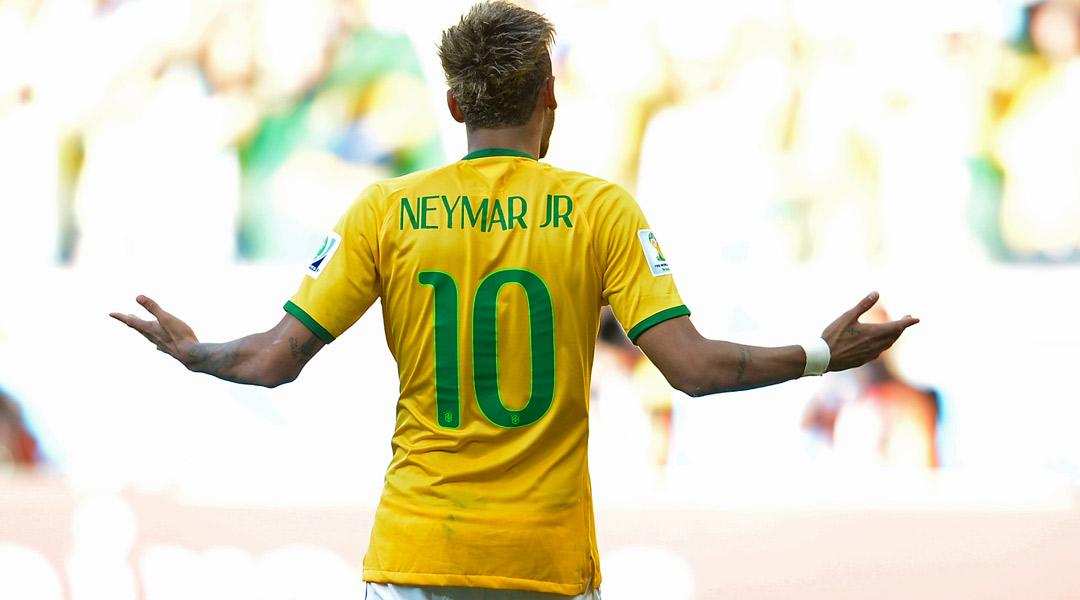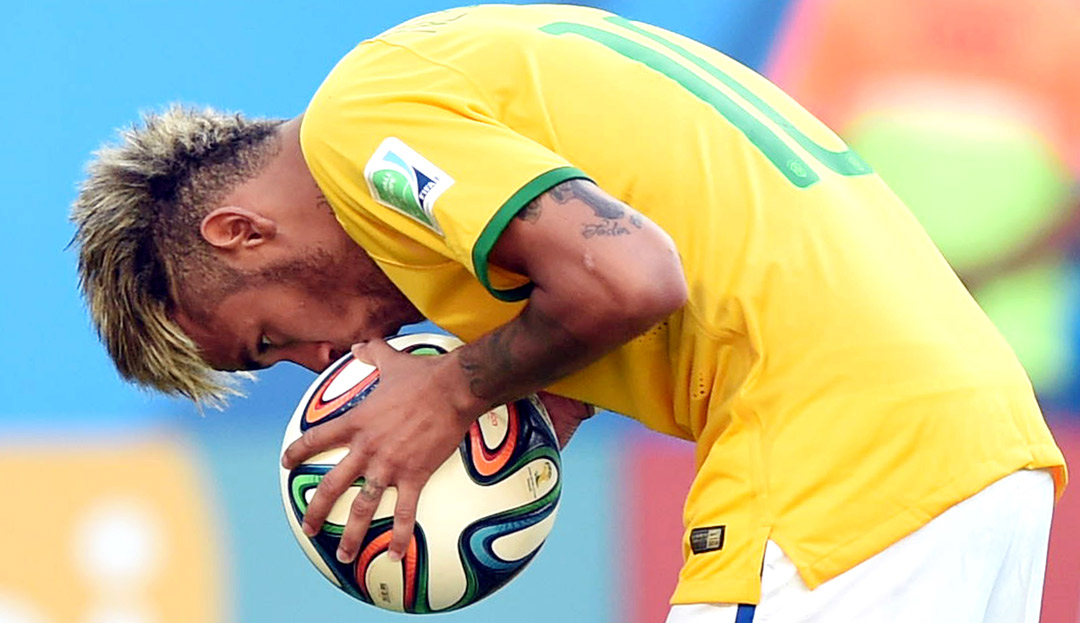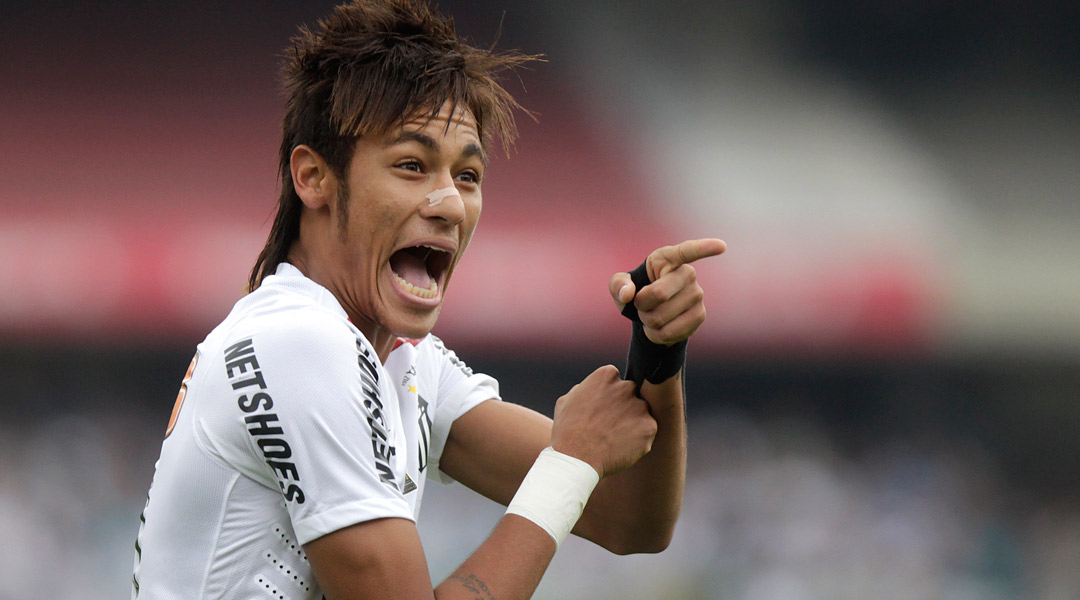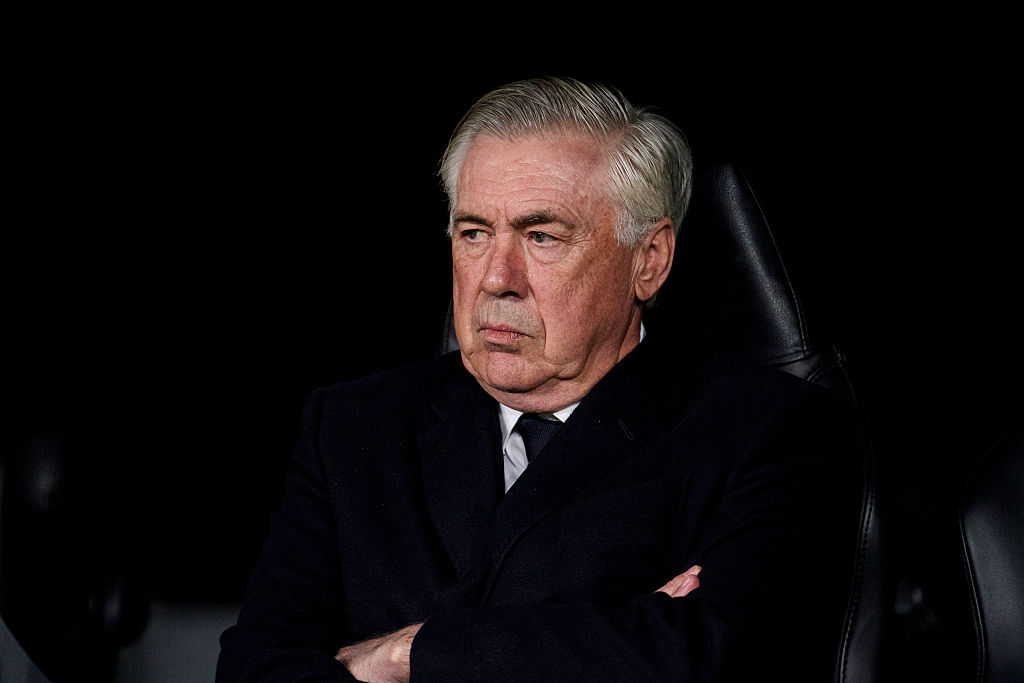Neymar the Redeemer: How Brazil's boy wonder came to carry the hopes of a nation
FFT's man in Brazil, Mauricio Savarese, explains why 200,000,000 people have everything pinned on the 22-year-old former tearaway from São Paulo...

On July 2, 2010, Brazilians were still hungover. Just hours before, the Seleção had been beaten 2-1 by the Netherlands in the quarter-finals of the World Cup. But Pelé was on TV to remind them what they had look to forward to. "In four years' time we will play at home and there will be talented youngsters like Neymar, Paulo Henrique Ganso, Alexandre Pato, Leandro Damião," he declared. "And we will still have experienced players such as Kaká, Ronaldinho, Adriano, Robinho."
Of those, only Neymar survived.
There are many reasons why the World Cup hosts are obsessed with their poster boy. Neymar features constantly in TV ads, exclusive interviews and in-depth profiles, despite only being 22.
“Ney is our star,” boasts striker Fred. To right-back Dani Alves, “this kid makes the difference between Brazil and the others.” Coach Luiz Felipe Scolari calls him “one of the greatest jewels ever produced in football”, to explain why his team depends so heavily on the youngster. He is the only player in the squad to enjoy national hero status, even without a big win with Brazil just yet.
Get FourFourTwo Newsletter
The best features, fun and footballing quizzes, straight to your inbox every week.
Lonely at the top
Usually Brazil have several players enjoying the World Cup limelight, both on the pitch and in a marketing sense. In 2010, Kaká and Robinho were the biggest stars in the team, while others shone intermittently. In Germany 2006, the ill-fated 'magic square' of Ronaldo, Adriano, Ronaldinho and Kaká helped those other team-mates profit, while also reinforcing their own power (until they lost to France).
It's different now. Neymar is so dominant that the second-most loved player in the squad is a defender: crazy-haired David Luiz.
Neymar’s loneliness explains why so much is expected from him. Midfielder Ganso has suffered with injuries since 2011, the year in which Neymar single-handedly won the Libertadores Cup for Santos. Striker Pato, a pop star off the pitch and a flop on it, has become a massive and expensive problem for AC Milan, Corinthians and now São Paulo. Damião, who spent years dodging Tottenham, signed for Santos and scored so few goals that some want to send him to Qatar or the UAE to get some of the money back.

The experienced players who could be some reference to Neymar also gave him the shaft. As Brazilians themselves say, Kaká, Ronaldinho and Robinho are more like former footballers who are still active. Adriano, the man who was supposed to be Brazil’s No.9 this summer, hasn’t overcome serious personal issues and doesn’t seem to want a way back into professional football. No other Brazilian youngsters are talented enough to know how Neymar is feeling, and no World Cup experts are close enough to share their experiences.
Brazilians respond by resting all of their expectations on him. The pressure on players like Oscar, Hulk, Fred and Paulinho is much lower than that projected on Neymar. Whenever Brazil don't do well, local media prefer to put it down to the 22-year-old's alleged lack of inspiration than anything else – unless it's a blatant failure from someone else, as has been the case with the Seleção so far.
Monster's ball
Until 2010, when Neymar won his first major tournament for Santos – the Brazilian Cup – he was as much a troublemaker as he was promising. Not only did he dive more than he does now, he also teased his rivals without reason, winning or losing. He even made coach Dorival Junior, one of his biggest fans, get fired because of a spat they had during a match. Coach René Simões called him “a monster”. His attitude made many believe that the injury-prone Ganso was the real gem of Brazil's new crop.
But when Brazil’s No.10 started getting better advice from his father and from Ronaldo, his image changed for the better. He ended his defiant attitude on the pitch, took part in humanitary campaigns, started a charity, welcomed a son (not many Brazilians footballers do that at his age) and embraced his pop star status by associating himself with top brands. He also decided to stay longer at Santos, which reinforced his bond with Brazilians to an extent that teenage girls went to matches simply to cheer for him – the Neymarzetes.
The Seleção was a natural step in his career, but no one thought he would have to be so lonely there. The lack of other great players has already helped Neymar score more goals than Rivaldo and Ronaldinho for the national team. In the last four years, no Brazilian has been among the top 10 strikers in European football.

"Ronaldo had Rivaldo and Ronaldinho to help him win in 2002. Neymar has himself," said 1970 World Cup winner Carlos Alberto. "And he has to do it at home, with a team that is far from fantastic. It's no wonder all Brazilians expect so much from the kid. Not even Pelé had to deal with so many difficulties to win."
So far Brazil’s No.10 has shown he deserves his status. Four goals in four World Cup matches demonstrates a player in top form. The penalty he scored against Chile in that dramatic shootout is a final sign that the boy has matured. Although many Brazilians will say nothing but the trophy will be accepted, they know their special player will be even better in Russia 2018 – great footballers usually play their best World Cup aged 26. He could also do well in Qatar (or some other place) in 2022.
When this World Cup began, Argentina’s Lionel Messi and Portugal’s Cristiano Ronaldo had scored only one goal in football’s greatest competition, despite dominating the Ballon d’Or votes in recent years. It took one game for Neymar to show he meant business in Brazil. He might not lift the Jules Rimet this summer, but if the Seleção want to be contenders for the trophy they'd better pray to Neymar the Redeemer; the omnipresent and gifted one.
